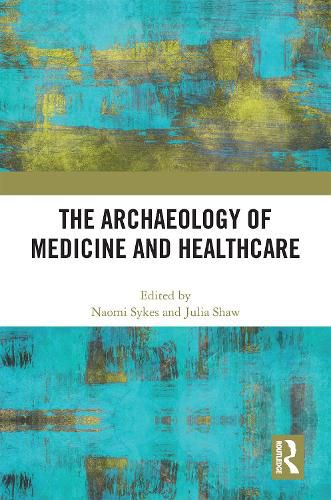Readings Newsletter
Become a Readings Member to make your shopping experience even easier.
Sign in or sign up for free!
You’re not far away from qualifying for FREE standard shipping within Australia
You’ve qualified for FREE standard shipping within Australia
The cart is loading…






The maintenance of human health and the mechanisms by which this is achieved - through medicine, medical intervention and care-giving - are fundamentals of human societies. However, archaeological investigations of medicine and care have tended to examine the obvious and explicit manifestations of medical treatment as discrete practices that take place within specific settings, rather than as broader indicators of medical worldviews and health beliefs. This volume highlights the importance of medical worldviews as a means of understanding healthcare and medical practice in the past.
The volume brings together ten chapters, with themes ranging from a bioarchaeology of Neanderthal healthcare, to Roman air quality, decontamination strategies at Australian quarantine centres, to local resistance to colonial medical structures in South America. Within their chapters the contributors argue for greater integration between archaeology and both the medical and environmental humanities, while the Introduction presents suggestions for future engagement with emerging discourse in community and public health, environmental and planetary health, genetic and epigenetic medicine, ‘exposome’ studies and ecological public health, microbiome studies and historical disability studies.
The chapters in this book were originally published as a special issue of World Archaeology.
$9.00 standard shipping within Australia
FREE standard shipping within Australia for orders over $100.00
Express & International shipping calculated at checkout
The maintenance of human health and the mechanisms by which this is achieved - through medicine, medical intervention and care-giving - are fundamentals of human societies. However, archaeological investigations of medicine and care have tended to examine the obvious and explicit manifestations of medical treatment as discrete practices that take place within specific settings, rather than as broader indicators of medical worldviews and health beliefs. This volume highlights the importance of medical worldviews as a means of understanding healthcare and medical practice in the past.
The volume brings together ten chapters, with themes ranging from a bioarchaeology of Neanderthal healthcare, to Roman air quality, decontamination strategies at Australian quarantine centres, to local resistance to colonial medical structures in South America. Within their chapters the contributors argue for greater integration between archaeology and both the medical and environmental humanities, while the Introduction presents suggestions for future engagement with emerging discourse in community and public health, environmental and planetary health, genetic and epigenetic medicine, ‘exposome’ studies and ecological public health, microbiome studies and historical disability studies.
The chapters in this book were originally published as a special issue of World Archaeology.